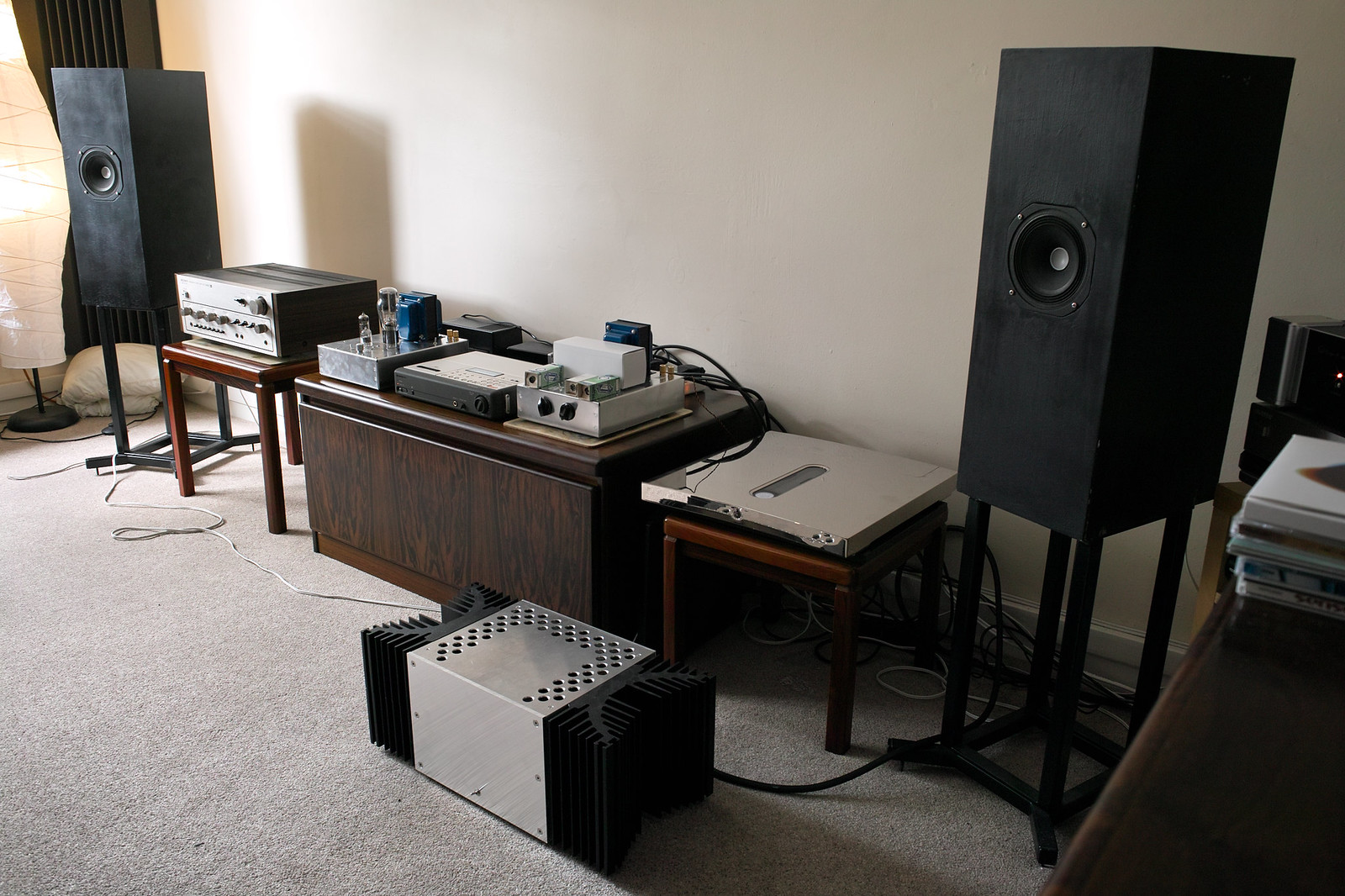Having heard the Devialet D-Premier in my system a few weeks back, and against some interesting competition I would say its possibly the 'Best' amp I have heard in the way that you dont hear it. I would agree with the owner its possibly the best 'straight wire with gain' amplifier.
This was up against my ~2.3wpc Decware Zen SET, two Fet amps (Sony V-Fet and DIY SIT) on that particular day.
http://www.flickr.com/photos/hoopsontoast/sets/72157634269369862/
Now, in my system I have a TA2020 T-Amp and the Decware as main residents (with the Doge 8 Pre Amplfiier), the T-Amp plays music for £30, and on relative cost, is the Decware 10x Better, or the Devialet over 300x Better? Who knows. Personally I dont think it would be worth it to me.
The main difference was aparent at higher volumes, as to be expected with the the Decware being ~2.3wpc. DIY SIT ~8wpc, Sony V-Fet having ~55wpc and the D-Premier being 500w (IIRC).
Now all of this was rather subjective and not level matched so take that as valid as you like, but IMO and IME there is a difference between amplifiers outputing the same sort of power into the same speakers.
I have measured the Decware, and it aint pretty, we are talking ~2% 2nd Harmonic Distortion minimum @1w/4ohms but you know what, at the normal volumes I listen, it sounded better than the T-Amp, and as good as the D-Premier which has NO audible distortion.
I wont give you a flowery discription of the relative sounds, and I know, if going by measurements then a lot of the amplifiers I have had should not sound good. Me, I have probably reached my pinicle with the Decware/Doge combo, I dont need any more, and dont really want to spend any more, although I have heard subjectively better, I really am not interested in pursuing that goal.
Best thing to do is try some amplifiers, in your system and see if you hear a difference. If you don't hear any better, then bonus, more money to spend on music :dance:
P.S. IME you can get larger changes in pre-amplifier stages (Phono/SUT and Line Stage) as long as your power amp meets your power output/current/impedance matching needs.



